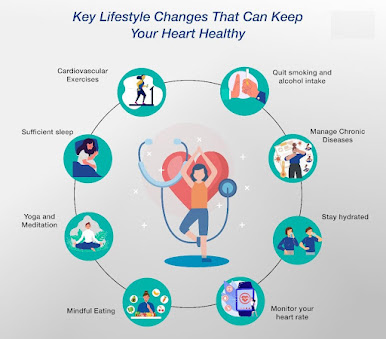Yes, there may be certain types of physical activity that you should avoid or modify based on your specific health conditions. It's essential to consult with your healthcare provider or a qualified exercise professional who can provide personalized guidance based on your medical history and current health status. They can help you determine the most suitable activities for you. However, here are some general examples of activities that individuals with certain health conditions may need to approach with caution or avoid:

1. Cardiovascular Conditions:
If you have heart disease, high blood pressure, or other cardiovascular conditions, certain high-intensity activities may not be suitable. Vigorous exercises such as sprinting or heavy weightlifting may pose risks. It's important to work with your healthcare provider to determine appropriate intensity levels and exercises that are safe for your condition, such as low-impact aerobic exercises or supervised cardiac rehabilitation programs.
2. Joint or Orthopedic Issues:
If you have joint pain, arthritis, or musculoskeletal conditions, high-impact activities that put stress on the joints may need to be avoided or modified. Activities like running, jumping, or intense aerobic classes may exacerbate symptoms. Low-impact exercises such as swimming, cycling, or using elliptical machines are often gentler on the joints.
3. Respiratory Conditions:
Individuals with asthma, chronic obstructive pulmonary disease (COPD), or other respiratory conditions may need to be cautious with activities that may trigger breathing difficulties. Exercises in cold or dry environments, high-intensity activities, or activities that involve prolonged exertion may need to be modified. Controlled breathing exercises and low-intensity aerobic activities like walking or gentle cycling may be more suitable.
4. Balance or Mobility Issues:
If you have balance problems or mobility limitations, activities that require quick changes in direction, high coordination, or intense balance may be challenging or unsafe. In such cases, focusing on activities that improve balance, stability, and strength, such as tai chi, gentle yoga, or seated exercises, may be more appropriate.
5. Pregnancy:
During pregnancy, certain activities should be avoided or modified to ensure the safety of both the mother and the baby. High-impact exercises, activities that involve lying flat on the back for extended periods, or contact sports may need to be avoided. Prenatal exercise programs and low-impact activities like walking, swimming, or prenatal yoga are often recommended. It's crucial to consult with a healthcare provider who specializes in prenatal care for specific exercise recommendations.
Remember, individual health conditions can vary, and the above examples are general guidelines. Always consult with your healthcare provider or a qualified exercise professional to get personalized advice based on your unique circumstances. They can guide you on the appropriate types, intensity levels, and modifications for physical activity based on your health condition and goals.
Comments
Post a Comment